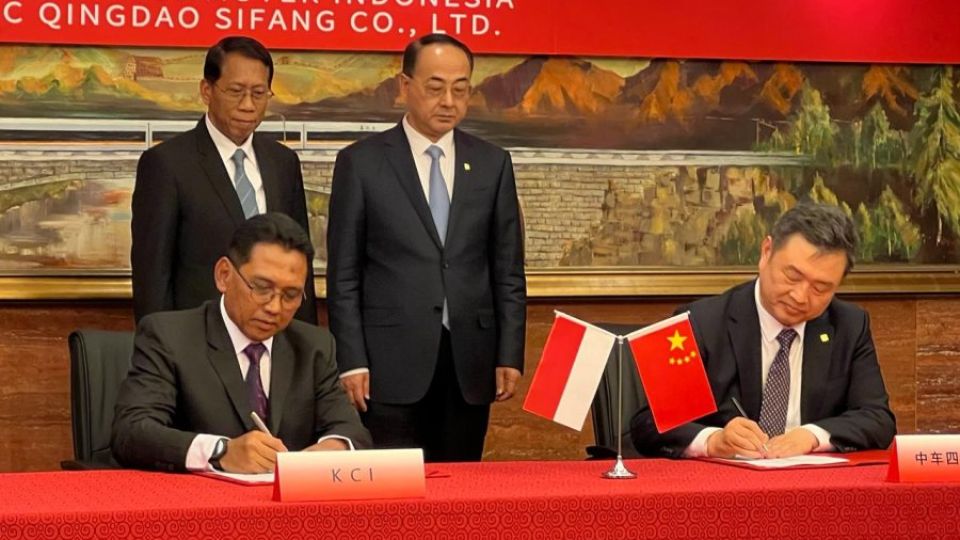February 2, 2024
JAKARTA – PT Kereta Commuter Indonesia (KCI), a subsidiary of state-owned railway company PT Kereta Api Indonesia (KAI) that operates the Commuter Line brand, has inked an agreement with CRRC Sifang Co. Ltd. to purchase three complete trains for Rp 783 billion (US$49.69 billion) from the Chinese state-owned rolling stock manufacturer.
KCI said the trains would replace the aging fleet of the Greater Jakarta Commuter Line and help boost the capacity of the electric rail service (KRL).
“The procurement of the new KRL facilities is to accommodate the needs of Greater Jakarta Commuter Line users in 2024-2025, which has reached [to date] almost 1 million commuters per day,” KCI president director Asdo Artriviyanto said in a statement on Wednesday.
In addition to state capital injection (PMN) from the government, KCI and parent company KAI plan to take out loans to pay for the new trains, which are intended to replace those that cannot be upgraded.
KCI had initially signed a memorandum of understanding (MoU) on Nov. 9 with CRRC Sifang Co. Ltd. to develop Indonesia’ railway facilities, which included an agreement to procure electric multiple unit (EMU) and diesel multiple unit (DMU) trains.
The MoU also marked a starting point for the two companies’ cooperation in technology transfer, facility maintenance and improvement, spare parts procurement and human resource capacity building.
The company initially planned to buy used trains from Japan last year to replace the aging Commuter Line fleet, after it determined that 10 old trains needed to be retired in 2023 and another 19 trains this year.
Japanese trains make up the bulk of the Commuter Line fleet, most of which was donated, while other trains originate from Belgium and South Korea.
But the plan took an unexpected turn in March 2023, when the Industry Ministry blocked KCI’s request to expedite the procurement process over the government’s local content requirement.
In June, Coordinating Maritime Affairs and Investment Minister Luhut Pandjaitan announced that Indonesia would be procuring new trains. Luhut said state-owned rolling stock manufacturer PT Industri Kereta Api (INKA) would meanwhile start retrofitting aging trains, which might otherwise disrupt rail services.
KCI is also procuring trains from other manufacturers to update its Commuter Line fleet, including a Rp 3.83 trillion deal for 16 new trains from INKA. Its retrofitting agreement with INKA is valued at Rp 2.23 trillion and covers 19 trains.
The government has been deepening its ties with China in the transportation sector in recent years, such as through the joint Jakarta-Bandung high-speed rail (HSR) development projects.
Operating as the Whoosh brand, the Jakarta-Bandung HSR entered into commercial service last October, after several years of delay due to cost overruns.
Indonesia initially sought to develop the HSR project in 2015 with Japan, but later decided to partner with China.
Most recently in January, the Transportation Ministry expressed its interest in procuring the Autonomous Rail Rapid Transit (ART) transit system developed by CRRC for the new capital Nusantara in East Kalimantan.


